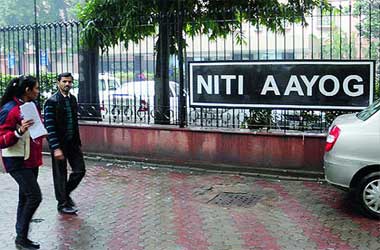US Supreme Court Permits Cities To Sue Banks Over Foreclosure
 A US Supreme Court ruling has opened the door for cities to sue banks for discriminatory lending practices that laid the foundation for the collapse of the housing market, triggering the foreclosure crisis in the country. The decision will empower city governments to take lenders to court for recovering lost tax revenues.
A US Supreme Court ruling has opened the door for cities to sue banks for discriminatory lending practices that laid the foundation for the collapse of the housing market, triggering the foreclosure crisis in the country. The decision will empower city governments to take lenders to court for recovering lost tax revenues.
So far such legal action was blocked because the banks alleged that the Fair Housing Act which provides protection against discrimination based on race applied to only people and not cities. Bank attorneys had asked for the legal suits to be dismissed but the high court had disagreed.
Supreme Court justices however have now ruled that cities can be labeled as an aggrieved person and can therefore sue over the impact of discrimination on housing. In his opinion, Justice Stephen G. Breyer referred to 1970s rulings regarding civil rights cases that dealt with action against real estate agents who refused to serve black and Latino home buyers.
His ruling found that reduced property tax revenues suffered by cities do fall under the scope of financial injuries arising out of discrimination. Breyer was joined in the opinion by Chief Justice John G. Roberts Jr., as well as Justices Sonia Sotomayor, Elena Kagan and Ruth Bader Ginsburg.
With this Supreme Court decision, Miami will now be able to sue Bank of America for intentionally using predatory tactics in Latino and African American neighborhoods which caused increased foreclosures and reduced property tax revenues.
Wochit News
Apart from Miami, Los Angeles and San Francisco have also filed similar suits against banks The ruling however is only a partial victory since the justices have also stated that they weren’t convinced that discriminatory lending practices directly led to revenue loss for the cities. Breyer noted that unless the cites could provide clear linkages between the lending practices and losses, they would not be able to claim damages
Three judges – Justices Anthony M. Kennedy , Clarence Thomas and Samuel A. Alito Jr – disagreed with the majority opinion, stating that the anti-bias law should be applied to only people who have suffered from discrimination and not cities facing financial losses. The case has now been sent back to the lower courts for reconsideration.
Civil right activists applauded the landmark ruling. In a statement, Dennis Parker, director of the ACLU’s racial justice program said
With this decision, the Supreme Court has acknowledged the crucial role of municipal governments in protecting residents’ rights. In housing and lending as in other areas, cities can and should serve as a bulwark against discrimination.
Related Articles
FDI Into Scotland Soars To Its Highest Ever Level In 2015
Scotland saw an increase of 51 percent in the number of foreign direct investment (FDI) projects secured by it in
NITI Aayog Offering Lucky Draws To Push Digital Payments
The Indian government’s think tank, NITI Aayog has proposed launching a weekly and quarterly lucky draw scheme to incentivize the
Indian PM Warns Of Additional Measures To Fight Black Money
Indian Prime Minister Narendra Modi has said that new measures might be launched to further target corruption and black money



